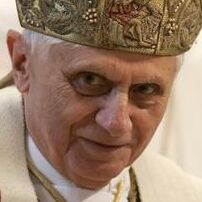
Pope Changes Church Teaching on Limbo
With his approval of a Vatican report released on April 20, Pope Benedict xvi overturned a teaching that had been extant in the Roman Catholic Church for hundreds of years. Upon Benedict’s say so, there are apparently now grounds for unbaptized babies and children to go to heaven instead of being kept in “limbo.”
The move was highly significant, said theologians, “for what it says about Benedict’s willingness to buck a long-standing tenet of Catholic belief” (Associated Press, April 20).
On April 23, Jeffrey Robbins wrote for the Huffington Post (emphasis ours):
Indeed Benedict, who before he became the pope was known as an arch-conservative and the enforcer of Catholic orthodoxy, is showing yet again that he is as astute as a politician as he is precise as a theologian, for with his conservative bona fides long since established, he is now able to wrap himself in the cloak of a certain kind of compassionate conservatism. [T]his … is a conservatism that ironically masks a radical agenda. …
Further, by extending his and the church’s compassion to the unbaptized, while this might be welcome relief to those who are grieving an incalculable loss, it is also a calculated claim for jurisdiction, and not just pastorally, but morally and politically as well. After all, who speaks for the unbaptized? If we are truly waiting on Benedict to warrant our hope in the face of tragic loss, then our dependency on the church as our moral arbiter is all but assured.
The findings released by the International Theological Commission clearly were personally endorsed and probably initiated by Benedict himself. Back in 1985, in a book-length interview The Ratzinger Report, then-Cardinal Joseph Ratzinger said limbo was “never a defined truth of faith,” and “personally … I would abandon it ….” Then, a few years ago, the International Theological Commission began examining the issue of limbo—while Ratzinger was president of the commission. He now gets to approve the very change in teaching that he was gunning for since before he became pope.
“It shows that Benedict is not afraid to look at something that has been taught in the church for centuries and say it is not at the core of Catholic belief,” said Thomas J. Reese, a senior fellow at Georgetown University’s Woodstock Theological Center.
It is also a shrewd move that could increase the church’s popularity with the masses, not to mention aid the ecumenical movement—the gathering of the daughter churches back into Rome’s fold.
Such a confidence in his own authority—and willingness to use it—is a trait we anticipate seeing much more of in Benedict. Prophecies spelled out in the Holy Bible tell of a powerful religious leader who would come on the scene in our day, shortly prior to the return of Jesus Christ. Increasingly, Benedict is looking like he may be this leader. If so, the time of Christ’s return is exceedingly near. Watch for further bold moves from Benedict.
As for the “limbo” teaching, read Chapter 12 of Herbert W. Armstrong’s book The Incredible Human Potential to learn the true, hope-filled destiny of all babies and children who die, as revealed in the Bible.
